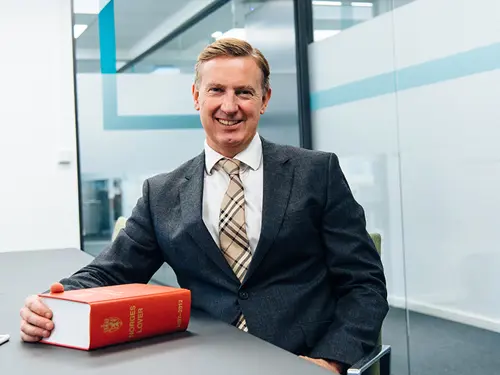
Advice and Tips
Have you reached retirement age – but still want to keep working?
The recent pension reform has created the opportunity for you to have a great deal of flexibility to decide for yourself how long you want to continue working. Below you’ll find the information you need to know before making any decision about your future.
While it’s not possible to cover every aspect of your pension here, the most important points are explained below. The pension reform has brought about adjustments in the National Insurance Plan’s (Folketrygden) life expectancy calculations. These adjustments have decreased future pension payouts for young people in Norway because of the country’s rapidly increasing life expectancy rate. Given this fact, the younger generation will have to keep working longer in order to receive the same pension amounts received by the previous generation.
What factors should I consider when deciding at what point I should collect my pension?
There are several underlying factors to consider when a person chooses to stop working and/or collect their pension.
Many Tekna members are motivated to stay at their job for a long time for the simple reason that they like working. Yet even if you too want to work longer, you should still consider collecting your pension at an earlier point in time and find out what your rights are should you choose to do so.
If you’re less motivated to keep working, it’s very important that you find out if there’s an optimal time for you to retire; for example, find out when you’ll be paid your maximum pension amount, or what other factors will affect your situation if you choose to stop working at a certain point in time.
A general piece of advice is that before making any decision, find out what the consequences of each of the alternatives you’re considering are with regard to working longer/retiring. The last thing you want is to get in a situation where you’ll be left with less income than you need to afford the lifestyle you want.
Can I still work while receiving retirement benefits?
Since the passing of the pension reform, people can generally work as much as they want to while still receiving retirement benefits. At the same time, different rules apply to different pension plans. Please keep in mind that the information provided below is of a general nature; in other words, you should ask for advice from either a pension provider or Tekna before going ahead and making any final decision about your future.
Private sector
If you work in the private sector (and have a company pension in accordance with private sector regulations/a contractual early retirement pension), you can freely collect your National Insurance Plan pension, contractual early retirement pension and company pension while working (applies to people ages 62 and above)
Public sector
Generally speaking, anyone who works in the public sector, and who was born in 1963 or later, is covered by the same regulations that apply to the private sector.
If you work in the public sector and were born in 1962 or earlier (and have a civil service pension and a civil service contractual early retirement pension), then, generally speaking, you can collect all of your pension when you stop working. An exception is if you want to slow down a bit and collect only part of your pension while working part-time; in this case, you can normally collect the amount that corresponds to the number of hours you’re working. However, this doesn’t include your National Insurance Plan pension, which you can only collect if you’re not collecting your contractual early retirement pension. Please note that if you collect your old-age pension from the National Insurance Plan before collecting your employer-based pension, the combined annual amount will be less once you’ve stopped working. And if you choose to work beyond the age of 67, it’s especially important that you check how continuing to work will affect your pension amount. This amount might be very low for people who’ve already earned full benefits; theoretically speaking, you can actually lose your pension if you work too long.
How much will I receive from my pension?
Generally speaking, your pension increases the longer you work and the longer you wait to collect it; so, working longer usually pays off. If you do work longer, you’ll also collect salary during this period, and this amount is on average higher than your pension amount. So, from a purely financial standpoint, it’d take a lot for you not to profit from continuing to work. At the same time, this of course means that you’ll have to stay at your job – which might not be something you really want to do.
Exceptions to the situation described above include public sector employees born in 1962 or earlier, as they might not profit to the same extent as their younger employees from working longer.
Pension providers usually post useful pension calculators on their websites; you can log on and calculate your own pension. It’s recommended that you look not only at what your pension amount will be upon withdrawal – but also at later points in time, f.ex. ages 67, 70 and 80. This is because a pension’s duration and amount can change over time. Most calculators give you the option to choose different points in time when you want to collect your pension/stop working.
Make sure you also pay attention to the fact that most calculators only compute in current krone values; in other words, don’t look at how pensions regulate themselves/increase from one year to the next. The value of early retirement might be overestimated (because the pension amount you’re not collecting will have a higher appreciation rate than the pension amount you are collecting at the time). The value of paid-up policies might also be overestimated, especially if you have to wait several years before you can collect on these policies (because they usually have a low appreciation rate).
What happens if I become ill or unemployed?
When you work, you’ll usually be able to collect unemployment benefits (unemployment insurance) and sickness benefits up to age 67 regardless if you’ve been collecting pension benefits up to that point in time.
If you keep working beyond the age of 67, you won’t be able to collect unemployment benefits if you lose your job. Tekna’s working to ensure that the right to collect unemployment benefits will continue past age 67: this will become more important, as our life expectancy rate is constantly rising; as a result, people will have to work longer to get a good pension. However, current legislation requires that if you’re older than 67 and unemployed/laid off, you have to collect your old-age pension.
If you’re over age 67 and employed, but become ill, you can receive sickness benefits from NAV for up to 60 days if your income is at a certain 2 G level (1 G = NOK 106,399 per 1 May 2021). This is a considerably shorter period than for people who are younger than 67 (they can receive sickness benefits for up to 12 months). Sickness benefits from NAV cover full salaries up to 6 G. Many employers cover an employee’s full salary during periods of illness, including salaries over this amount; however, they might also have different rules/practices about how this is done for employees who are older than 67.
Generally speaking, you’re entitled to receive sickness benefits even if you’re collecting your pension; however, there may be special rules regarding employer-based pension plans (especially in the public sector). If you’re collecting an old-age pension (from for example a civil service pension plan) while working at the same time and become ill, your pension provider may be contacted in order to confirm your illness.
If you’re over age 70, you have no right to receive sickness benefits regardless of the circumstances.
If you’re on long-term sick leave that extends beyond the normal sickness benefit period, you can apply to receive disability benefits (for example a work assessment allowance or disability payments). Your right to receive these benefits ceases when you turn 67 regardless of the circumstances; if you’re older than 67, you may collect your old-age pension regardless of the circumstances.
What about other «benefits» from my employer?
There’s a lot of variation with regard to what employers provide for their employees. While all employers are required to offer a minimum number of insurance plans to their employees, many employers provide considerably better plans than what is required by law. Generally speaking, these benefits cease when you quit working for your employer. Some insurance plans also cease at a certain age (for example 67 or 70). It can be useful to look into this matter. If there’s a particular type of insurance coverage you want to have after leaving your employer, you may in many instances be entitled to do so through buying private insurance policies. If interested, you should ask your insurance provider for prices.
Other employer-sponsored benefits like free wifi and telephone service, access to equipment, etc., will also normally cease when you leave your employer.
Do I have the right to work part-time?
If you’re over age 62, you generally have the right to work part-time (and receive a corresponding salary) if doing so doesn’t create a «significant disadvantage for the organization». This means that it’ll be very difficult for your employer to deny you the right to work if this is what you want to do. For many people, this often means they work longer than they otherwise would’ve done. If you too want to keep working beyond the age of 62, you should let your employer know well ahead of time so you can find solutions that “work” for both of you.
If the reason you want to work part-time is health-related, you should talk to your doctor, as there may be health-related benefits you could be entitled to receive that won’t lead to any reduction in your salary.
Can Tekna help me?
Of course! Any questions you may have regarding pension – or anything else you’re wondering about that’s job-related – can be answered by the staff of Tekna’s legal department, which provides free legal assistance to all Tekna members.




